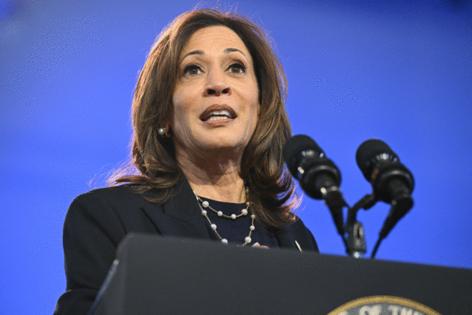Harris’ Closing Message: Why it Must Center on Anti-Elitist Economics
I don’t know about you, but I’m feeling more anxious about the outcome of the upcoming election. I’m still nauseously optimistic, but the nausea is growing.
I’m as skeptical of polls as any of you, but when all of them show the same thing — that Kamala Harris’ campaign stalled several weeks ago, yet Trump’s continues to surge — it’s important to take the polls seriously.
Harris will give her closing message to the American people tomorrow at a rally on the National Mall’s Ellipse in Washington.
Over the last several weeks, she’s focused on Trump’s threats to a woman’s right over her body and to the rights of all Americans to a democracy.
Tomorrow night, though, she needs to respond forcefully to the one issue that continues to be highest on the minds of most Americans: the economy.
She must tell Americans simply and clearly why they continue to have such a hard time despite all the official economic indicators to the contrary: It’s because of the power of large corporations and a handful of wealthy individuals to siphon off most economic gains for themselves.
Most Americans are outraged that they continue to struggle economically at the same time billionaires are pulling in ever more wealth. Most know they’re paying too much for housing, gas, groceries, and the medicines they need. They also know that a major cause is the market power of big corporations.
They want someone who’ll stand up to big corporations and the politicians in Washington who serve them.
They want a president who’ll be on their side. A president who will crack down on price gouging, who will bust up the monopolies and restore competition, who will fight to cap prescription drug costs, who will get big money out of politics and stop the legalized bribery that rigs the market for the rich, and who will make sure corporations pay their fair share and end tax breaks for billionaire crooks.
A president who will put working families first — before big corporations and the wealthy.
Harris needs to say she will be this president.
Her policy proposals support this. She’s committed to strong antitrust enforcement — cracking down on mergers and acquisitions that give big food corporations the power to jack up food and grocery prices, prosecuting price-fixing, and banning price gouging. She needs to remind voters of this.
She also says she’ll raise taxes on the rich, provide $25,000 in down-payment assistance to help Americans buy their first home, restore the Expanded Child Tax Credit to $3,600 to help more than 100 million working Americans, and introduce a new $6,000 tax cut to help families pay for the high costs of a child’s first year of life.
All should be parts of her speech tomorrow about why she will be the champion of working people.
She wants to raise the minimum wage to $15 an hour, make stock buybacks more expensive, and expand Medicare to cover home health care — paid for with savings from the expansion of Medicare price negotiations with drug manufacturers.
She needs to frame all of this as a response to the power of big corporations and the wealthy — and say in no uncertain terms that she’s on the side of the people, not the powerful.
If she fails to do this in her closing argument, Trump’s demagogic response will be the only one the public hears — that average working people are struggling because of undocumented workers and the “enemy within,” including Democrats, socialists, Marxists, and the “deep state.”
Harris should fit her message about democracy inside this economic message. If our democracy weren’t dominated by the rich and big corporations, fewer of the economy’s gains would be siphoned off to them. Average working people would have better pay and more secure jobs and be able to afford to homes, food, fuel, medicine, child care, and eldercare.
A large portion of the public no longer thinks American democracy is working. According to a new New York Times/Siena College poll, only 45% believe our democracy does a good job representing ordinary people. An astounding 62% say the government is mostly working to benefit itself and elites rather than the common good.
In her closing argument, Harris should commit herself to reversing this, so government works for the common good.
Harris started her campaign in July and early August by emphasizing these themes about the economy and democracy.
But in more recent weeks, she’s focused mostly on Trump’s particular threat to democracy. Her campaign seems to have decided that she can draw additional voters from moderate Republican suburban women upset by Trump’s role in fomenting the attack on the U.S. Capitol.
That’s why she’s been campaigning with Liz Cheney and gathering Republican officials as supporters. And why she has chosen to give her closing message on the Ellipse — where Trump summoned his followers to march on the Capitol on January 6, 2021.
Yet when she shifted gears from the economy to Trump’s attacks on democracy, Harris’ campaign stalled. I think that’s because Americans continue to focus on the economy and want an answer to why they are still struggling economically.
If Trump gives them an answer — although baseless and demagogic — but Harris does not, he may sail to victory on Nov. 5.
Hence in her closing message she must talk clearly and frankly about the misallocation of economic power in America — lodged with big corporations and the wealthy instead of average Americans — and her commitment to rectify this.
























Comments